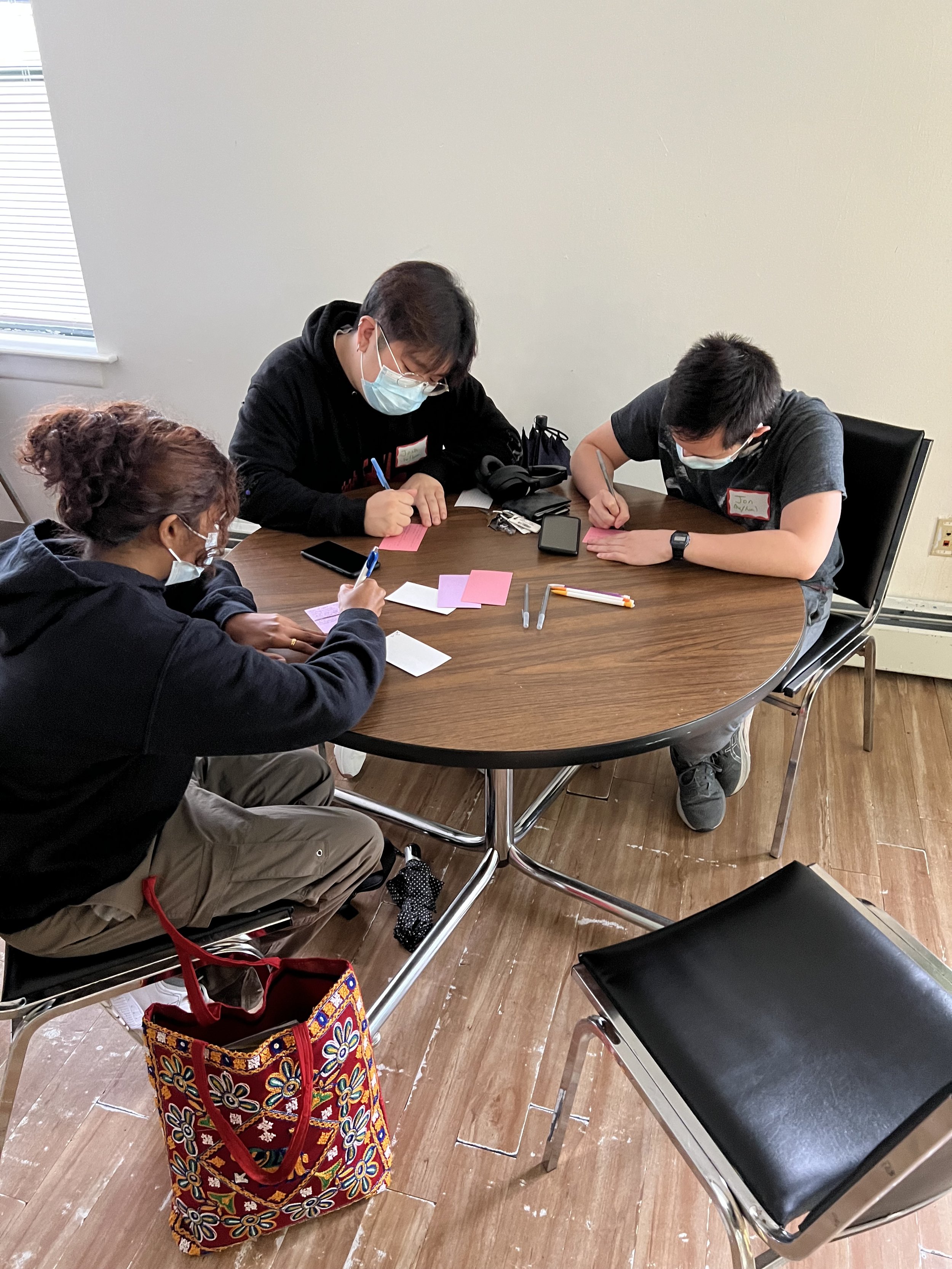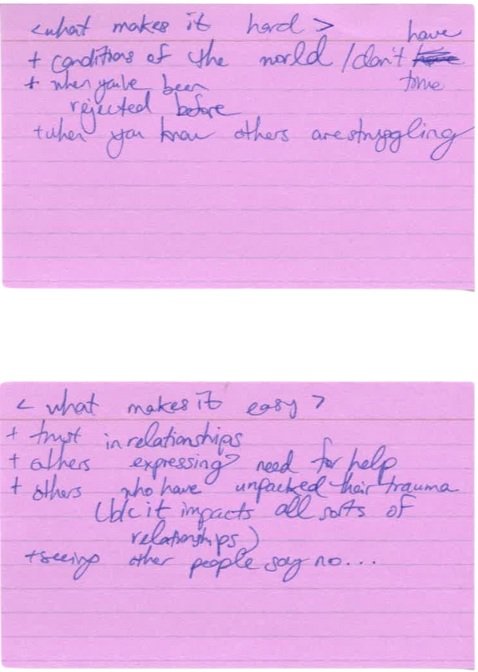Ask for Help, Ask for Love
-
Others' narrative of care
Asking for help has nothing to do with race, class, or positionality.
-
Our narrative of care
Asking for help is political. Your ability to ask for help has everything to do with your identities and the world around you.
Methods
Growing up in Việt immigrant households, Anh Thư and Matte saw their families struggle to get by. Anh Thư internalized that asking for help is shameful and bothers the person who was asked. Matte coped by becoming hyper-independent and struggled to accept care. Your relationship with asking for help and receiving care might be more complicated if you are disabled, grew up in an immigrant household, experience poverty, or have any intersections.
In this workshop, participants collectively identified situations in which it was easy to ask for help, situations in which it was hard to ask for help, and the factors that made it easy or difficult respectively. Then, participants condensed these experiences into clear barriers to asking for help, and collectively workshopped antidotes to those barriers. Participants shared these antidotes and barriers out loud with the group to end the workshop.
Matte (they/them) is an artist of any medium they can get their hands on. These days, they're drawing a genderqueer comic, building bikes, and running TransFits with Anh Thư. They are a child of a Viet immigrant and an adoptee. They are learning to listen to and live through their body.
Anh Thu (he/him) sees into souls and helps them realize their deepest needs and desires. He has created and led workshops from intro to improv to collar making with laser engravers. He's currently thrift shopping for queer and trans folks' euphoria, making earrings, and building furniture.






